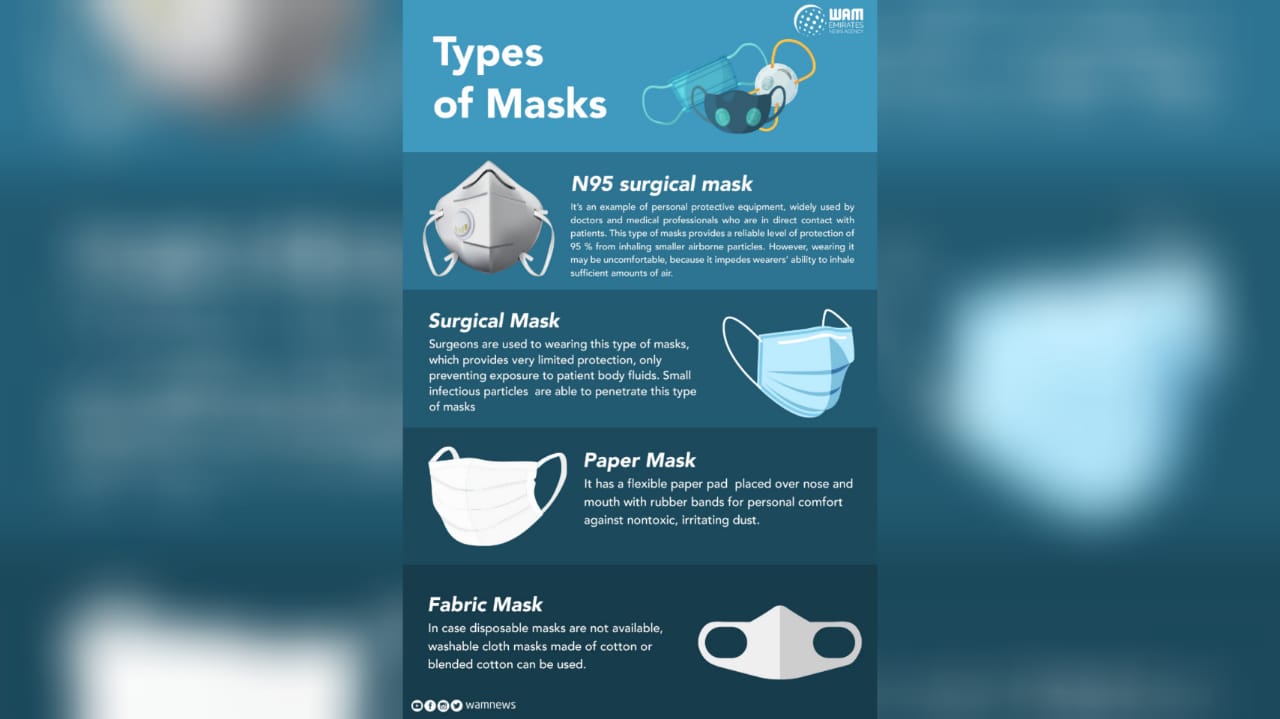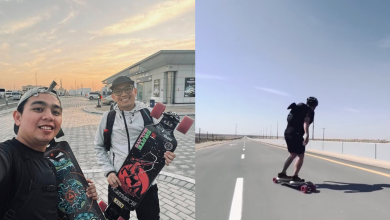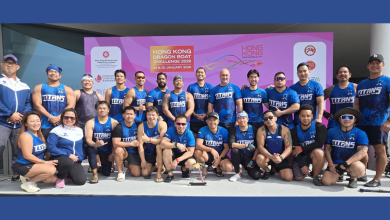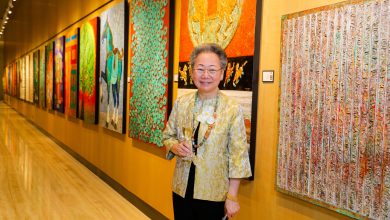The UAE’s call for heightened safety measures continues as the Ministry of Health and Prevention recently announced the need for all those who step outside their homes to wear protective equipment, including masks and gloves.
Emirates News Agency (WAM) released an infographic outlining the different types of masks currently acknowledged by officials, along with pointers for usage.

N95 Surgical Mask: It’s an example of personal protective equipment, widely used by doctors and medical professionals who are in direct contact with patients. This type of mask provides a reliable level of protection of 95% from inhaling smaller airborne particles. However, wearing it may be uncomfortable, because it impedes wearer’s ability to inhale sufficient amounts of air.
RELATED STORY: Medical masks should be reserved for healthcare workers, persons showing COVID-19 symptoms — WHO
Surgical Mask: Surgeons are used to wearing this type of mask, which provides very limited protection, only preventing exposure to patient body fluids. Small infections particles are able to penetrate this type of mask.
Paper Mask: It has a flexible paper pad placed over the nose and mouth with rubber bands for personal comfort against nontoxic, irritating dush.
READ ON: Cloth masks can be worn as alternatives — MoHAP spokesperson
Fabric/Cloth Mask: In case disposable masks are not available, washable cloth masks made of cotton or blended cotton can be used.
MoHAP spokesperson Dr. Farida Al Hosani urged those who will wear cloth masks to not only wash the mask at the end of the day for reuse the next day, users should also not share the same mask with other individuals.
She also stressed not to reuse medical masks with one-time usage and to dispose of them properly.




